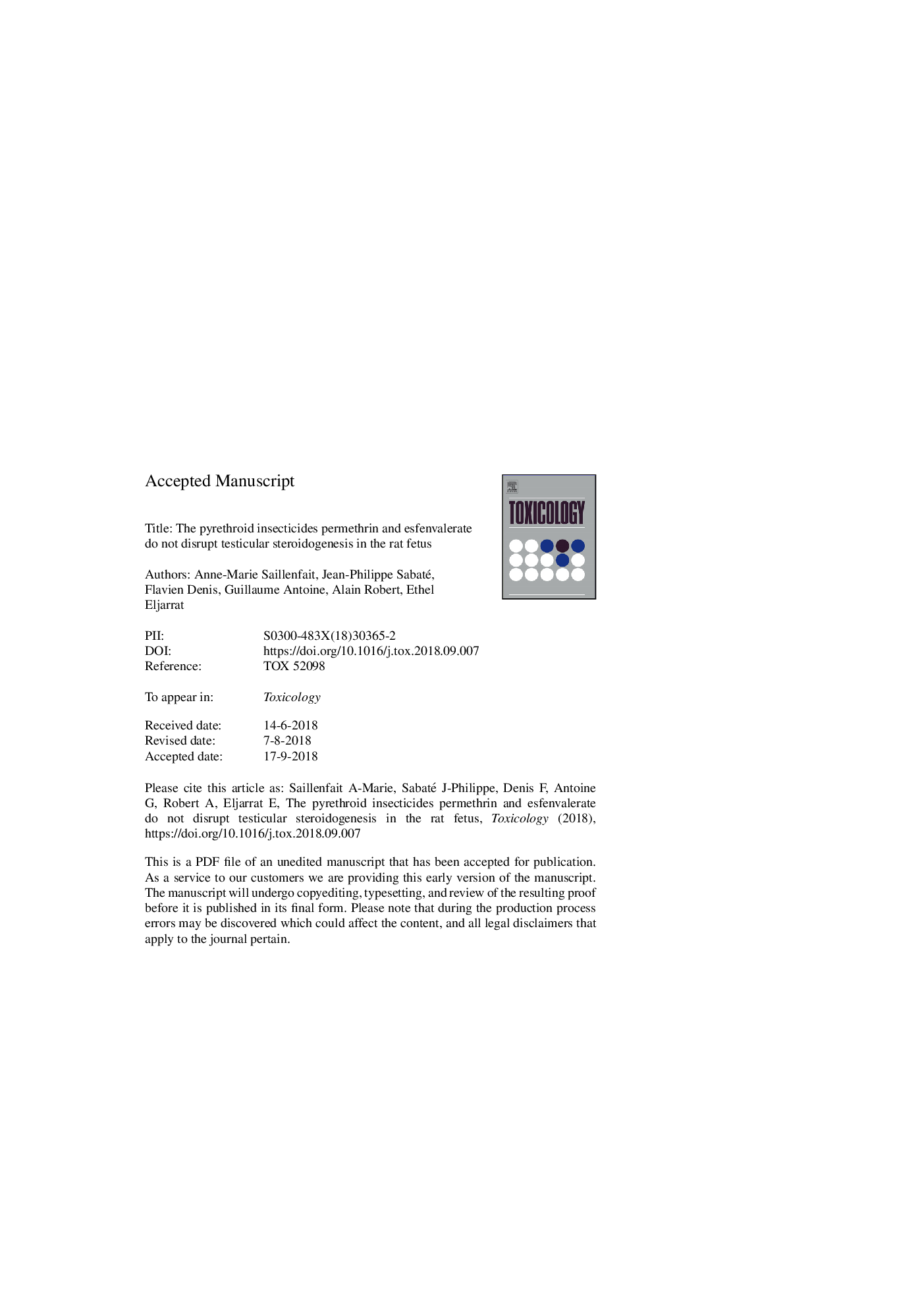| Article ID | Journal | Published Year | Pages | File Type |
|---|---|---|---|---|
| 11030726 | Toxicology | 2018 | 38 Pages |
Abstract
The present study investigated the effects of maternal exposure to the widely used pyrethroid insecticides, permethrin and esfenvalerate, on fetal testicular steroidogenesis. Pregnant Sprague-Dawley rats were administered permethrin at doses of 1, 10, 50, or 100âmg/kg/day, or esfenvalerate at 0.1, 1, 7.5 or 15âmg/kg/day, by gavage, from gestation day (GD) 13 to 19. Testicular testosterone production and the expression of several key genes necessary for cholesterol and androgen synthesis and transport were assessed in GD 19 male fetuses. Dams treated with 100âmg/kg/day of permethrin or 15âmg/kg/day of esfenvalerate showed clinical signs of neurotoxicity. The highest dose of esfenvalerate also resulted in reduced maternal body weight gain throughout the treatment period. In the fetal testes, mRNA expressions of HMG-CoA synthase and reductase, SR-B1, StAR, P450scc, 3βHSD, P450 17A1, and 17βHSD were not affected by exposure to either pyrethroid. No significant change was observed in ex vivo testosterone production. In conclusion, in utero exposure to permethrin or esfenvalerate has no effect on the testosterone biosynthesis pathway in the fetal rat testis up to maternal toxic doses.
Keywords
RfDMale reproductive development17βHSD3-Hydroxy-3-methylglutaryl-coenzyme A synthaseEsfenvalerate3βHSDCytochrome P450 17A13β-Hydroxysteroid dehydrogenaseSR-B1NOAELP450scc3-phenoxybenzoic acid3-PBAdibutyl phthalatemRNADBPGAPDH3-hydroxy-3-methylglutaryl coenzyme A reductasecDNAComplementary DNAHMG-CoA reductaseHMG-CoA synthasemessenger RNASteroidogenesisstandard deviationTestistestosteroneFetusReference dosegestation dayStarRatno-observed-adverse-effect levelPermethrinsteroid acute regulatory proteinPVCPyrethroidsPolyvinyl chlorideglyceraldehyde-3-phosphate dehydrogenasescavenger receptor class B type 1
Related Topics
Life Sciences
Environmental Science
Health, Toxicology and Mutagenesis
Authors
Anne-Marie Saillenfait, Jean-Philippe Sabaté, Flavien Denis, Guillaume Antoine, Alain Robert, Ethel Eljarrat,
